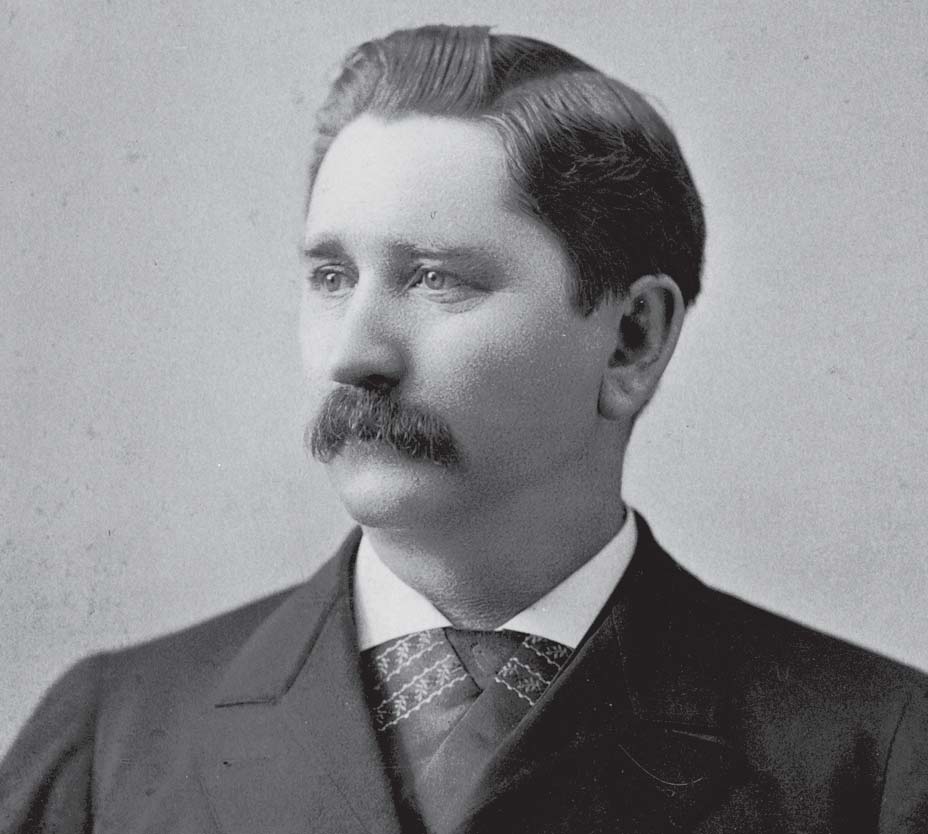PoliticsThe method by which groups make decisions about government refers to the method by which groups make decisions about government. Political (pol-It-ik-al) powerThe power that groups have in controlling decisions about government is the power that groups have in controlling decisions about government.
Alexander McKenzie• Northern Pacific Railroad political agent
• Had so much political power he was nicknamed “Alexander the Great” and “Boss of North Dakota” was a Northern Pacific Railroad construction worker. He settled in Bismarck and in 1874, at the age of 24, was elected sheriff of Burleigh County. He held that position for 12 years. McKenzie had leadership abilities, and the Northern Pacific Railroad Company chose him as their political agent.

Figure 3. Alexander McKenzie was the political “Boss of North Dakota.” (SHSND A2279)
As a political agent, it was McKenzie’s job to persuade people to work for government decisions that would benefit the railroad company. Railroad companies sometimes took advantage of people and businesses in order to make greater profits (more money) for their company. McKenzie got so much political power that he was nicknamed “Alexander the Great” and “Boss of North Dakota.” By the time he died, he was a millionaire. The town of McKenzie and McKenzie County were named after Alexander McKenzie.
Nehemiah Ordway• Governor of Dakota Territory from 1880 to 1884
• A good friend of Alexander McKenzie was appointed governor of Dakota Territory in 1880. Governor Ordway and Alexander McKenzie became good friends. Many people had talked about moving the territorial capital from Yankton to a more central location. Because the main line of the Northern Pacific Railroad went through Bismarck, Northern Pacific Railroad officials wanted the capital located there.


